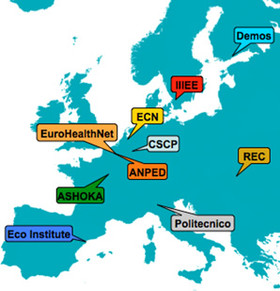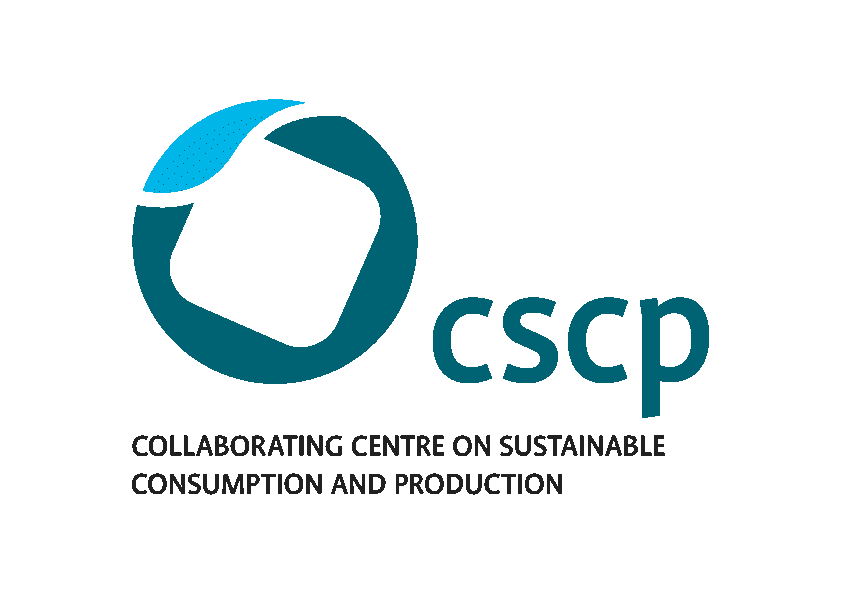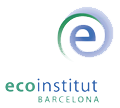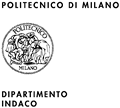
Partners
A European consortium of partners bringing expertise in sustainable consumption, research, health and civil society, and led by the UNEP/Wuppertal Institute Coordinating Centre on Sustainable Consumption Production (CSCP) is conducting this project. The Consortium Partners are introduced below. Please click on a title to jump to the location on this page where each partner is described in more detail.
Ashoka France
 Ashoka is envisions an ‘Everyone is a Change-maker’ kind of world. Its mission is to participate in the development and structuring of social entrepreneurship globally. This is done through the selection and direct financial support of social entrepreneurs in their personal development; the promotion of their collaboration, organized by thematic area; and contributing to the development of the social entrepreneurship sector globally through the development of a range of programs and initiatives that support, e.g. the ‘Venture & Fellowship’ program. Ashoka finds and fosters the most powerful emergent ideas being led by the most effective social entrepreneurs and provides a pathway for all citizens to be change-makers.
Ashoka is envisions an ‘Everyone is a Change-maker’ kind of world. Its mission is to participate in the development and structuring of social entrepreneurship globally. This is done through the selection and direct financial support of social entrepreneurs in their personal development; the promotion of their collaboration, organized by thematic area; and contributing to the development of the social entrepreneurship sector globally through the development of a range of programs and initiatives that support, e.g. the ‘Venture & Fellowship’ program. Ashoka finds and fosters the most powerful emergent ideas being led by the most effective social entrepreneurs and provides a pathway for all citizens to be change-makers.
Demos Helsinki (DEMOS, Finland)
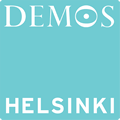 Demos Helsinki is Finland's only independent think tank. Its aim is to develop democracy to suit the needs and capabilities of the people of the 21st century. Its vision is essentially people-centric. Demos believes that all change starts with an individual and emerges from our communities. In the heart of Demos Helsinki’s work is extensive, high-quality research. It produces scenarios, recommendations and experimentations, which give new insight into grasping the great challenges of the future. Central themes of our research are well-being, democracy and citizen participation, future cities and low-carbon society. Demos Helsinki works with companies, NGOs and Finnish ministries, the parliament, municipalities and other organisations of the public sector that are willing to widen their perspective and renew themselves. The starting point of the collaboration is acting, learning and creating together.
Demos Helsinki is Finland's only independent think tank. Its aim is to develop democracy to suit the needs and capabilities of the people of the 21st century. Its vision is essentially people-centric. Demos believes that all change starts with an individual and emerges from our communities. In the heart of Demos Helsinki’s work is extensive, high-quality research. It produces scenarios, recommendations and experimentations, which give new insight into grasping the great challenges of the future. Central themes of our research are well-being, democracy and citizen participation, future cities and low-carbon society. Demos Helsinki works with companies, NGOs and Finnish ministries, the parliament, municipalities and other organisations of the public sector that are willing to widen their perspective and renew themselves. The starting point of the collaboration is acting, learning and creating together.

Ecoinstitut Barcelona (ECOI, Spain)
![]() http://www.ecoinstitut.es/english/
http://www.ecoinstitut.es/english/
 ECOI works for the protection of the environment and the sustainability culture, and for the introduction of these principles into the social and environmental reality that surrounds us. The achievement of this objective materialises through the development of different scientific studies, applied research, personalised assessment and mediation, promotion and diffusion actions that, according to the principles of sustainable development, involve a social, economic and environmental positive impact.
ECOI works for the protection of the environment and the sustainability culture, and for the introduction of these principles into the social and environmental reality that surrounds us. The achievement of this objective materialises through the development of different scientific studies, applied research, personalised assessment and mediation, promotion and diffusion actions that, according to the principles of sustainable development, involve a social, economic and environmental positive impact.
Energy Research Centre of the Netherlands (ECN)
![]() ECN is a leading institute in national and international energy research - from fundamental research to practical application of knowledge and technologies. The unit Policy Studies which partakes in this project is an important independent advisor to European and Dutch governments and relies on the expertise of its multidisciplinary team of social scientists while profiting also from the in-house technological expertise. ECN Policy Studies conducts research into policy frameworks, scenario development and road mapping, socio-technical research on energy innovation and behavioural research. ECN will contribute to this project with high-level social scientific expertise, experience with the methods of back-casting, stakeholder dialogues and action research. ECN will bring in networks and knowledge from the field of energy-related behaviour (living, transport, and infrastructure).
ECN is a leading institute in national and international energy research - from fundamental research to practical application of knowledge and technologies. The unit Policy Studies which partakes in this project is an important independent advisor to European and Dutch governments and relies on the expertise of its multidisciplinary team of social scientists while profiting also from the in-house technological expertise. ECN Policy Studies conducts research into policy frameworks, scenario development and road mapping, socio-technical research on energy innovation and behavioural research. ECN will contribute to this project with high-level social scientific expertise, experience with the methods of back-casting, stakeholder dialogues and action research. ECN will bring in networks and knowledge from the field of energy-related behaviour (living, transport, and infrastructure).
Julia Backhaus
Sylvia Breukers
EuroHealthNet
 EuroHealthNet is a not-for-profit network of regional and national agencies responsible and accountable for health promotion, public health and disease prevention in Europe. Its aim is to improve the health of European citizens by striving for a healthier Europe with greater health equity between and within countries. They do this by supporting projects and policy development together with their members and the EU institutions; by exchanging information and by communication in and beyond their network.
EuroHealthNet is a not-for-profit network of regional and national agencies responsible and accountable for health promotion, public health and disease prevention in Europe. Its aim is to improve the health of European citizens by striving for a healthier Europe with greater health equity between and within countries. They do this by supporting projects and policy development together with their members and the EU institutions; by exchanging information and by communication in and beyond their network.
The International Institute for Industrial Environmental Economics at Lund University (ULUND, Sweden)
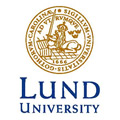 ULUND facilitates the transformation of societies to sustainable development by utilising the synergies of cross-disciplinary education and research that is based upon direct engagement with private and public sectors and government. It educates through M.Sc. and PhD. programmes, undergraduate courses, executive training and an international youth outreach programme. All efforts target future decision-makers in management and policy for sustainable development.
ULUND facilitates the transformation of societies to sustainable development by utilising the synergies of cross-disciplinary education and research that is based upon direct engagement with private and public sectors and government. It educates through M.Sc. and PhD. programmes, undergraduate courses, executive training and an international youth outreach programme. All efforts target future decision-makers in management and policy for sustainable development.
Research foci are sustainable product and service systems, distributed economies, and energy for sustainable development through collaborative case studies and demonstration projects in order to develop and disseminate new knowledge and practices, with a strong emphasis upon interaction with society at large and by the utilisation of synergies between various disciplines, paradigms and methodologies. The Institute’s work is often action oriented and is designed so that results can be applied at local, national and global scales.
Politecnico di Milano (Polimi, Italy)
 The Design and Innovation for Sustainability (DIS) research unit in the Department of Industrial Design and Multimedia Communication focuses on sustainable product service-system innovation, from both the environmental and the social perspectives. DIS is actively involved in didactic activities, basic and applied research in different fields such as strategic design, scenario building, life cycle design, service design, product-service-system design, mobility and transportation management and innovation, natural resources management, and urban planning. Its research deals with a variety of issues related to sustainability such as housing, territorial systems and emerging contexts, food system, welfare, mobility, and creativity systems.
The Design and Innovation for Sustainability (DIS) research unit in the Department of Industrial Design and Multimedia Communication focuses on sustainable product service-system innovation, from both the environmental and the social perspectives. DIS is actively involved in didactic activities, basic and applied research in different fields such as strategic design, scenario building, life cycle design, service design, product-service-system design, mobility and transportation management and innovation, natural resources management, and urban planning. Its research deals with a variety of issues related to sustainability such as housing, territorial systems and emerging contexts, food system, welfare, mobility, and creativity systems.
The Northern Alliance for Sustainability (ANPED, Belgium)
 The Northern Alliance for Sustainability (ANPED) works to empower Northern civil society in creating and protecting sustainable communities and societies world-wide. ANPED’s main focus is on sustainable consumption and production, the use of goods and services responding to basic human needs and bringing a better quality of life, while minimizing the use of natural resources, toxic materials and emissions of waste and pollutants over the life cycle, so as not to jeopardize the needs of future generations. ANPED builds capacity among Northern civil society organizations through information, knowledge and skill-sharing, and enable their participation in local, national, regional and international decision-making processes on sustainable development.
The Northern Alliance for Sustainability (ANPED) works to empower Northern civil society in creating and protecting sustainable communities and societies world-wide. ANPED’s main focus is on sustainable consumption and production, the use of goods and services responding to basic human needs and bringing a better quality of life, while minimizing the use of natural resources, toxic materials and emissions of waste and pollutants over the life cycle, so as not to jeopardize the needs of future generations. ANPED builds capacity among Northern civil society organizations through information, knowledge and skill-sharing, and enable their participation in local, national, regional and international decision-making processes on sustainable development.
Regional Environmental Center for CEE Countries (REC, Hungary)
![]() http://www.rec.hu/e_index.html
http://www.rec.hu/e_index.html
![]() The REC Country Office in Hungary assists in solving environmental problems in Central and Eastern Europe (CEE). The Center fulfills its mission through encouraging cooperation among non-governmental organisations, governments and businesses, supporting the free exchange of information and promoting public participation in environmental decision-making.
The REC Country Office in Hungary assists in solving environmental problems in Central and Eastern Europe (CEE). The Center fulfills its mission through encouraging cooperation among non-governmental organisations, governments and businesses, supporting the free exchange of information and promoting public participation in environmental decision-making.
Subcontractors
Strategic Design Scenarios (SDS)
![]() http://www.solutioning-design.net/
http://www.solutioning-design.net/
![]() http://www.sustainable-everyday.net/
http://www.sustainable-everyday.net/
![]() Strategic Design Scenarios (SDS) is a sustainability innovation lab specialised in strategic design, scenario building, co-design with users and visualisation techniques. It is active in various fields and research projects from investigating Creative Communities for Sustainable Living in China, India, Brazil and Africa with UNEP to European research project investigating social innovation to support sustainable transition or exploring the future of innovation. SDS is consulting for industry and is involved in several cultural and networking activities. It is specialised in user-centred and community centred approaches based on projective techniques such as story-telling, story-boarding, scenarios scripting of new and more sustainable ways of living. In particular SDS co-develops visual forms of scenarios based on short video clips or sequences of still images to facilitate the engagement and the strategic conversation with citizens and local stakeholders.
Strategic Design Scenarios (SDS) is a sustainability innovation lab specialised in strategic design, scenario building, co-design with users and visualisation techniques. It is active in various fields and research projects from investigating Creative Communities for Sustainable Living in China, India, Brazil and Africa with UNEP to European research project investigating social innovation to support sustainable transition or exploring the future of innovation. SDS is consulting for industry and is involved in several cultural and networking activities. It is specialised in user-centred and community centred approaches based on projective techniques such as story-telling, story-boarding, scenarios scripting of new and more sustainable ways of living. In particular SDS co-develops visual forms of scenarios based on short video clips or sequences of still images to facilitate the engagement and the strategic conversation with citizens and local stakeholders.



